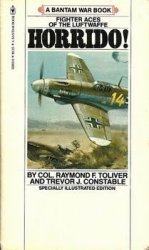During the presidential campaign and throughout his foreshortened presidency, Kennedy articulated a strategic vision that differed from Eisenhower’s in key respects. Operating from the assumption that the purported missile gap between the Soviet Union and the United States was real - the evidence, in
Fairness, was not yet conclusive that it was not - he pounded away in stump speeches about the need to bolster US defenses. This conviction formed an instrumental part of Kennedy’s broader plea for the United States to prosecute the Cold War with greater vigor. He wanted to regain the initiative that he thought the Soviets had seized from the Americans, and he believed that spending additional dollars to enhance both the nation’s conventional military capabilities and its long-range missile forces was imperative.
Like Eisenhower, the Democratic chief executive personally harbored a deep unease about the sure-to-be horrific consequences of any nuclear war with the Soviet Union. Quite unlike Eisenhower, however, Kennedy was convinced that expanding the full range of the nation’s nonnuclear capabilities would reduce that threat by allowing the United States to tailor its responses appropriately to each kind and level of threat: from limited war to conflict on the periphery to insurgence to subversion. Such enhanced flexibility would eliminate, in his view, the all-or-nothing straightjacket imposed by the Eisenhower policy of massive retaliation, a policy he had blasted during his senatorial years. Kennedy’s counterdoctrine of "flexible response," perhaps his administration’s most distinctive innovation in the national security sphere, flowed directly from that supposition. The increased defense spending that the new president set as his highest priority was made possible by a Keynesian-influenced economic philosophy that, in sharp contradistinction to Eisenhower’s conservative orthodoxy, held that the American economy was more than capable of absorbing increased defense expenditures - without suffering the deleterious effects that so exercised his predecessor. In that important respect, Kennedy’s embrace of Keynesianism freed him from the tight budgetary constraints within which Eisenhower operated. Kennedy also advocated a more innovative, tolerant, and activist policy toward the Third World. Convinced that the primary scene of the struggle between the United States and its Soviet-Chinese adversaries had shifted to the developing areas, he elevated the battle for the Third World to a first-order priority in overall Cold War strategy.
The distinctive features of Kennedy’s national security strategy emanated mostly from a heightened perception of the dangers posed to US security by the Soviet Union and China. Certain that the United States’ adversaries were growing both stronger and more adventurous, he and his chief foreign-policy advisers considered a more activist US approach essential to meet the rising external threat those adversaries presented. "I think there is a danger," he declared in one campaign speech, "that history will make a judgment that these were the days when the tide began to run out for the United States.

23. Secretary of Defense Robert McNamara, Secretary of State Dean Rusk (middle), and President John F. Kennedy.
These were the times when the Communist tide began to pour in."419 Those concerns dominated the president’s first state-of-the-union message ofJanuary 1961. In it, he implored Congress to provide sufficient funds for "a Free World force so powerful as to make any aggression clearly futile." Neither the Soviet Union nor China, he said, "has yielded its ambitions for world domination." He offered an exceptionally bleak vision of the global situation in the address, noting that he spoke "in an hour of national peril" and declaring it "by no means certain" that the nation would endure. "Each day the crises multiply,” Kennedy stressed. "Each day their solution grows more difficult. Each day we draw nearer the hour of maximum danger as weapons spread and hostile forces grow stronger."420




 World History
World History









